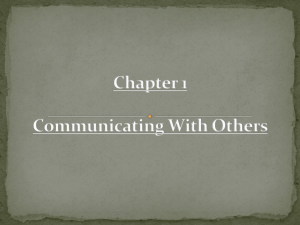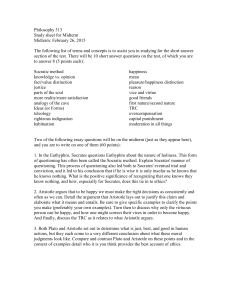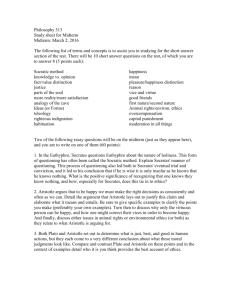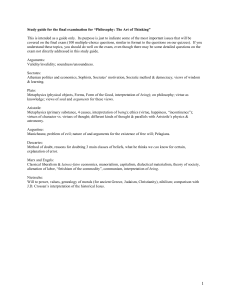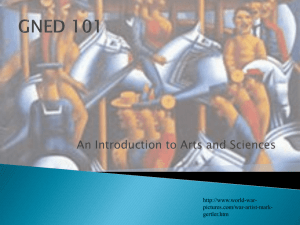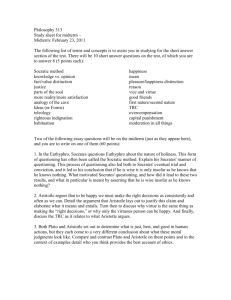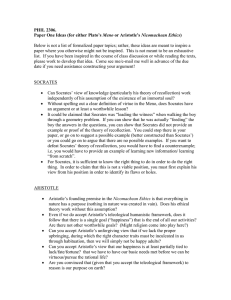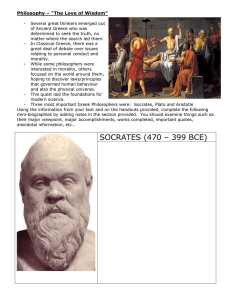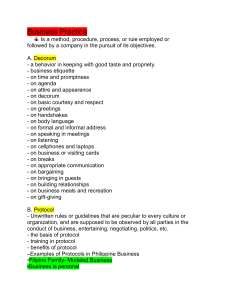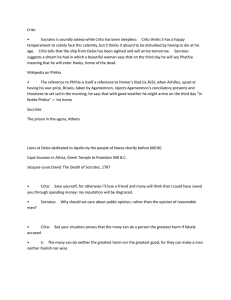January 2009
advertisement
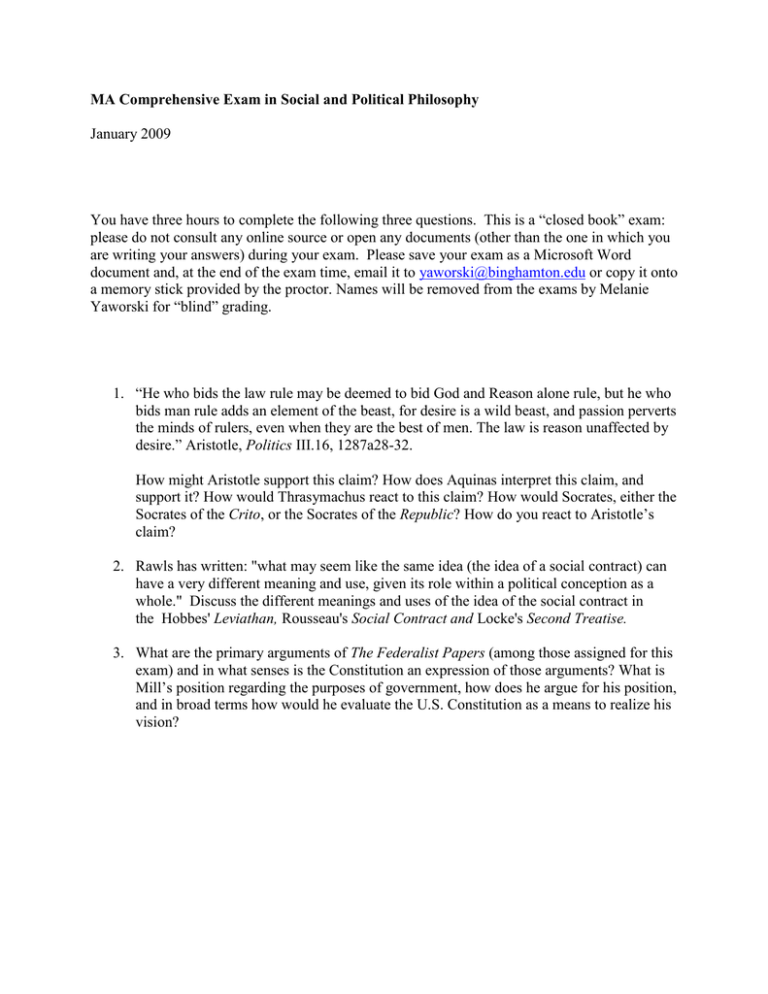
MA Comprehensive Exam in Social and Political Philosophy January 2009 You have three hours to complete the following three questions. This is a “closed book” exam: please do not consult any online source or open any documents (other than the one in which you are writing your answers) during your exam. Please save your exam as a Microsoft Word document and, at the end of the exam time, email it to yaworski@binghamton.edu or copy it onto a memory stick provided by the proctor. Names will be removed from the exams by Melanie Yaworski for “blind” grading. 1. “He who bids the law rule may be deemed to bid God and Reason alone rule, but he who bids man rule adds an element of the beast, for desire is a wild beast, and passion perverts the minds of rulers, even when they are the best of men. The law is reason unaffected by desire.” Aristotle, Politics III.16, 1287a28-32. How might Aristotle support this claim? How does Aquinas interpret this claim, and support it? How would Thrasymachus react to this claim? How would Socrates, either the Socrates of the Crito, or the Socrates of the Republic? How do you react to Aristotle’s claim? 2. Rawls has written: "what may seem like the same idea (the idea of a social contract) can have a very different meaning and use, given its role within a political conception as a whole." Discuss the different meanings and uses of the idea of the social contract in the Hobbes' Leviathan, Rousseau's Social Contract and Locke's Second Treatise. 3. What are the primary arguments of The Federalist Papers (among those assigned for this exam) and in what senses is the Constitution an expression of those arguments? What is Mill’s position regarding the purposes of government, how does he argue for his position, and in broad terms how would he evaluate the U.S. Constitution as a means to realize his vision?

